A Deeper Wave
For true Waterman, mastering multiple water sports is just the beginning of a much more meaningful relationship with the ocean
Countless words have been written and spoken about who does or does not deserve to be called a Waterman, the ocean’s ultimate honorific. Although some may use the word loosely, the term has always had a complex significance, one as wide and deep as the ocean where the title is earned—especially in the Hawaiian Islands, where it’s used with the utmost reverence.
A Waterman must be world-class in all the ways you can work and play in the ocean—surfing, paddle boarding, diving, canoeing, sailing, fishing. Very few have such extreme versatility and skill, which are merely the baseline requirements to be a true Waterman. Defining characteristics also include a depth of feeling for the ocean, the ability to handle what Mother Nature gives you, and a sixth sense that allows you to always find joy in the water. With this deeper connection comes an openness to all the ocean has to teach and a need to share its wonders and protect them. The following six members of OluKai’s Ohana—or extended family—possess the feeling and live by it in the water and in the soul.
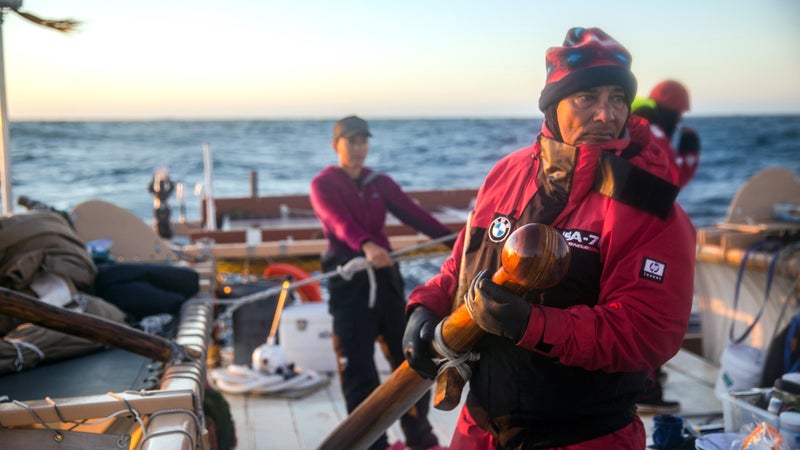
Endless Innovation
“You wouldn’t be a Waterman if you weren’t open to new things.”—Archie Kalepa
As the world’s first open-ocean navigators, Polynesians have been on the pioneering edge of adventure and innovation for thousands of years. “Our ancestors, they were aquanauts,” says Maui native and elder statesman Archie Kalepa, “doing things that were unthinkable before them.” It’s a tradition that Watermen like Kalepa, whose own Polynesian roots go back centuries, have prided themselves on keeping alive. As a talented young lifeguard, Kalepa eventually rose to head Maui’s ocean safety operations, where he pioneered the use of jet skis in ocean rescue, heroically saving the lives of 12 people (and one dog) when a hurricane hit the island in the early '90s.
Kalepa then got behind jet skis, literally, using them to tow-in surf monster breaks like Maui’s Jaws. Next he was at the forefront of another innovation, foilboards: unique surfboards with hydrofoils that extend below the board into the water, allowing the board to skim above water at certain speeds. As futuristic as that sounds, Kalepa is equally invested in preserving ancient Polynesian navigational skills. As an instrumental member of the journey of the Hōkūle‘a—a traditional sailing canoe that’s currently being piloted around the world using celestial navigation and wave-reading techniques—Kalepa has been helping bridge the past with the present. “You see and pay attention, listening, feel the movement,” he says, “and all of a sudden, you’re beginning to learn what the ancestors knew.”
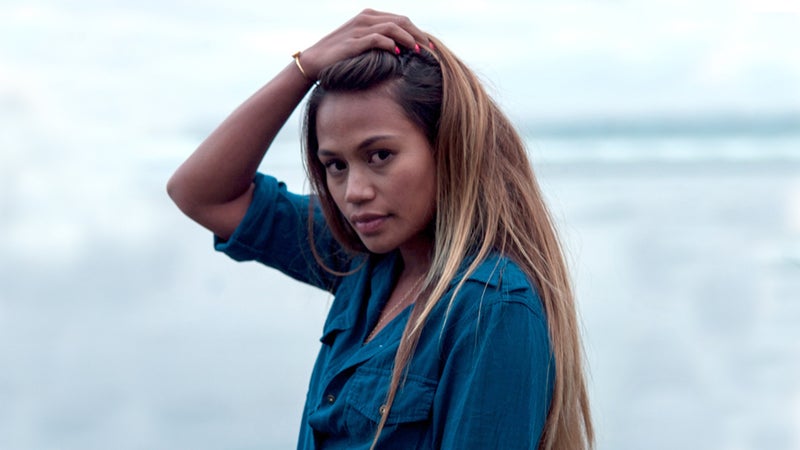
Inheriting the Ocean
“This connection with the ocean is also a connection with your ancestors.”—Ha’a Keaulana
If there’s a common thread to OluKai’s Ohana it’s that the ocean always leads back to loved ones, either in person or in spirit. For photographer and elite longboard surfer Ha’a Keaulana, the story starts with her grandfather Buffalo Keaulana, a legendary surfer and peer of the long-celebrated father of modern surfing Duke Kahanamoku, who first put Keaulana on a surfboard as young girl. Keaulana’s father Brian, a stunt man who earned fame for big-wave surfing and heroic and innovative lifeguarding, continued her education. “I don’t put myself in the same category as them,” says Oahu native Keaulana, “but I want to keep learning from them and the ocean itself.”
On days when it’s too calm for surfing, Keaulana will often go for a swim with her dad. “It’s just us being together, the values of family,” Keaulana says. And her family has always been in the water. After Keaulana’s birth, in a traditional ceremony, Brian swam out to his favorite lineup at Makaha and put her umbilical cord under rocks on the sea bottom. Says Keaulana, “When I have my children, theirs will go at my favorite lineup.”
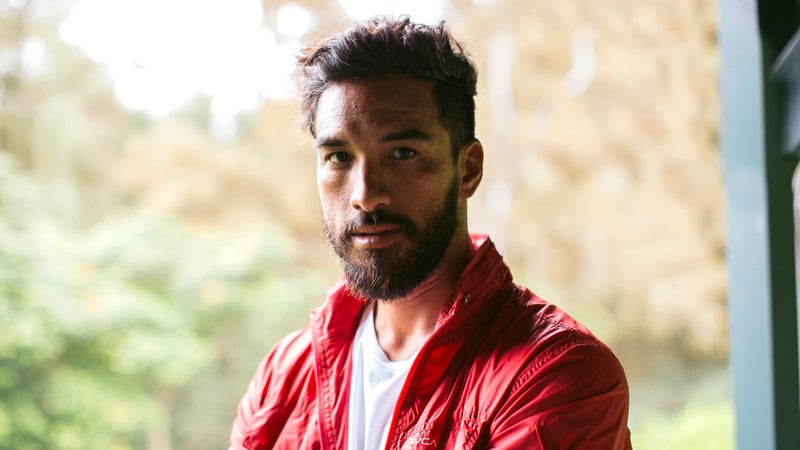
Transformation and Healing
“Anyone can catch waves, but real surfers can make waves.”—Kamu Davis
“I have seen the ocean change people in so many ways,” says Kamu Davis. With the help of his grandfather, it turned him into a surfer at age three on his native North Shore of Oahu, the cradle of surfing greats. Several months a year, you’ll still find him here, patrolling the legendary breaks where he first learned to surf. “The stakes and the standards of knowledge are high,” says Davis, which is a modest way of saying he belongs to the elite group of lifeguards who patrol the world’s most dangerous beaches. But that’s just part of his identity.
Every year Davis goes to mainland beaches to help perform another kind of rescue—and to promote change in youngsters who desperately need it. As a volunteer for Surfers Healing, he teaches autistic children how to surf in one-day clinics across the country. The program was started by pro surfer Izzy Paskowitz, who discovered that surf had the power to calm and cheer up his profoundly autistic and difficult son. Davis says kids might get only 15 or 20 minutes board time with a volunteer, but parents have told him it’s as big a deal as Christmas. For Davis, it’s all about trust. “At first the surf impact zone can be overwhelming and scary,” he says, “but a kid can look at the teacher and feel safe—and then go out and have a life-changing experience.”
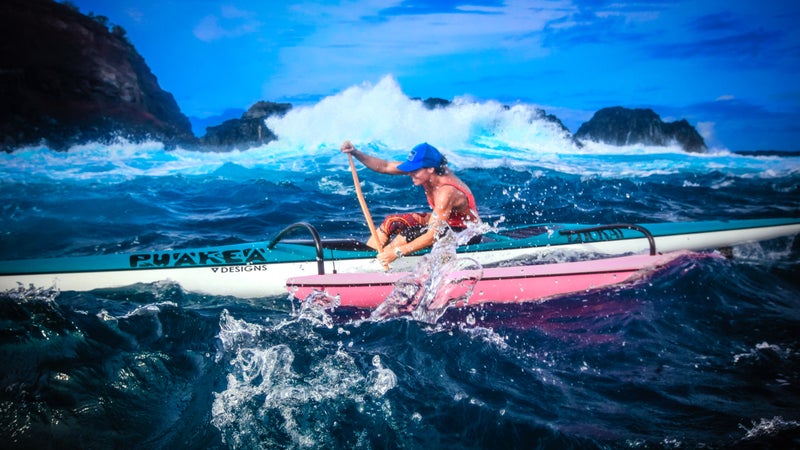
The Pacific as a Racing Partner
“It’s your ocean knowledge that wins, for sure–tides, currents, knowing when to push your day.”—Lauren Spalding
Lauren Spalding can paddle. The Maui native competed in the 2004 Summer Games in flatwater kayaking, and she, piloting a one-person outrigger canoe, won first place in the 2016 OluKai Ho'olaule'a race. She also knows how to read the waves and has won the prestigious Molokai-Oahu solo outrigger canoe race a remarkable 11 times. The epic 32-mile open-ocean race is a “down-winder,” and Spalding wins by working the swells, which she says run in three different directions. “You’re utilizing all three, connecting turns from one swell to another. Basically, you’re chasing bumps and surfing all the time.” She has finished in four hours flat—a (fast) runner’s pace on land. “At the end of the day, you feel new again,” Spalding says.
It’s a familiar feeling for Spalding. She’s been at home in an outrigger canoe on open water since age three, when her dad started taking her out on the long paddling and sailing adventures he was known for. Now Lauren sets a strong Waterwoman example for her own children. “It’s a lifestyle. I do many ocean sports—paddling, surfing, diving, swimming, or just taking the kids to the beach to be in the ocean or around it.” Like her father, she likes to take off on long paddles. “You’re far away, you’re vulnerable, and I love it.”
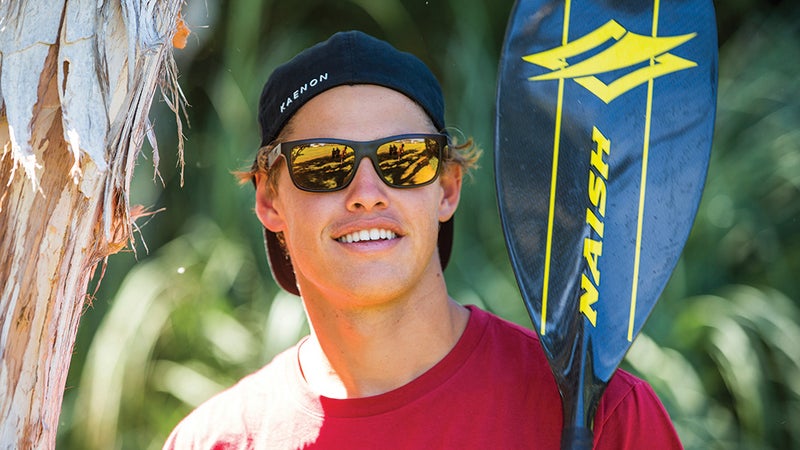
Roots Surfing
“I don’t see the fun in this ever going away.”—Noa Ginella
Although modern standup paddleboarding has only recently gained wide popularity, there’s nothing new about it. “This sport was around for hundreds of years,” says Maui native and pro SUPer Noa Ginella. “There are old paintings and stories about Hawaiians standup paddling.” While Ginella is normally a fixture on the SUP world tour, he’s currently taking a break from the circuit for adventurous SUP trips and experimenting with another heritage sport: surfing on finless shaped wooden planks called alaia.
Most alaia boards basically replicate original Hawaiians’ surfboards and can weigh several hundred pounds, though Ginella makes and rides shorter alaia. He likes hand-cutting and shaping so much he makes boards for friends. “Riding waves, you go so fast it’s insane. But they’re really hard to paddle out,” he says. While the boards have less control, you can also do things that would be impossible on boards with fins, like coming sideways down a wave front and going into a sort of helicopter spin. “It’s simultaneously very ancient and very rewarding,” says Ginella.
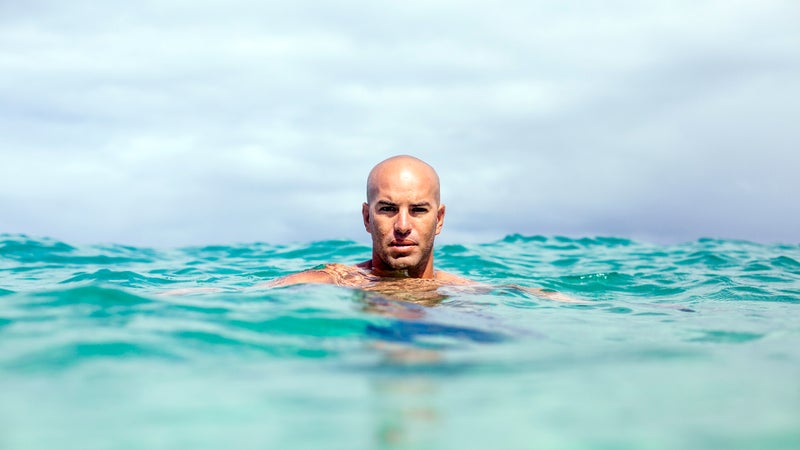
Growing Up With Sharks
“Did I like them? Of course! What kid doesn’t like any type of nature and animals of that size?”—Kaiwi Berry
As a boy, Kaiwi Berry would go on his grandfather’s boat out of Haleiwa Harbor on Oahu’s North Shore to help pull crab traps. “Sharks would get the leftover bait. Over time, they learned to recognize the sound of motors and come up and check us out,” says Berry. “I saw ones with specific markings, named them, began having relationships.” He’d play with the sharks by grabbing their tails and, inevitably, getting out of the boat to swim with them.
Today, Berry has his own boat, the Mo'o, harbored on the North Shore. He takes clients out to and learn about them the way he did under the watchful eye of his grandfather—without a cage, swimming free in crystalline water. The only difference is that Berry’s playfulness has been replaced by respect and reverence. “I stopped giving sharks names,” Berry says, “because in Hawaiian culture they can be considered guardians.” When he isn’t educating people about sharks, he’s surfing, swimming, sailing, or fishing. “Whatever the conditions are,” he says, summing up the philosophy of a true Waterman, “you pick the activity where you’re going to have the most fun.”
OluKai is a luxury lifestyle brand that believes everyone, no matter where they are, can live Aloha. The stories of these watermen and women are shared as part of the Anywhere Aloha campaign, celebrating the deep connections we all have with each other and the ocean. We invite you to experience more at

